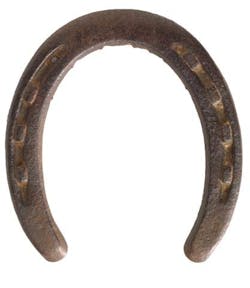Timing is everything when dealing with insurance policies. First, you need to have insurance in place before you need it.
And to make sure you have adequate coverage, you need to take the time to prepare yourself before meeting with insurance carriers.
The more information you have on your business, the better the chances are that you can save money on your policies. “Details drive the price of premiums,” notes Gerry Cecil, aftermarket training and business development specialist for Zurich North America.
Insurance checklist
A checklist can swiftly get your information in order and assist you in extracting the maximum benefit from your insurance dollar, Cecil notes.
Information on your business controls, processes and management practices can give you the means to be flexible to purchase the amount of insurance you want and not be limited based upon exposures or experience.
Key components of an insurance program cover these elements:
• Property. You should have a statement of values on your buildings, stock and equipment. This should include an appraisal on real property, an employee tool list, and what you need to cover a business interruption.
• Crime. This includes employee dishonesty limits, pension/profit sharing/401(k) amount insured, computer fraud, etc.
• Liability. Often called garagekeepers, liability insurance is actually coverage provided for damage to a customer’s vehicle while in your care, custody or control.
Garagekeepers, which is typically a part of garage liability, covers accidents such as a technician backing a customer’s car into a light pole or rear-ending another vehicle while on a test drive, etc.
Garage liability also can provide protection for suits related to employee-related exposures such as discrimination, harassment and employee benefits. While assessing discrimination exposures, coverage should also be provided for acts of harassment or discrimination toward customers, vendors and others with whom you have business dealings. You also need to consider liability exposures and coverages with respect to administering your employee benefits programs, Cecil notes. “It is important to get your employees trained and documented in this area.”
[PAGEBREAK]Cecil says a large commercial tire dealer he deals with reports his largest number of claims are employment related. “It is, unfortunately, a condition of today’s economy. Is coverage expensive?
You have to look at how expensive it will be to not have it and have to defend yourself. Set a deductible you can live with.”
• Products/completed operations. This coverage is designed to protect your shop against claims resulting from improper work or a faulty product. This coverage also is for claims caused by wheel-offs or oil out, in addition to subcontracted work.
• Pollution liability. Properly disposing of oil and tires falls into this category. “The issue of fluids is understandable,” says Cecil. “As a tire dealer performs oil changes, it is understood that he has to do something with the hazardous waste he generates. He can burn it in a waste oil heater, but he may also elect to dispose of it. He needs to be sure that he has properly insured transporters as well as disposal facilities that meet Environmental Protection Agency requirements.”
Pollution liability coverage helps you handle the unknowns of the disposal businesses you use. That includes tire disposal. Did you know you could be sued as a potentially responsible party if an off-site tire pile catches on fire? If the run-off water from fire fighting efforts contaminates or pollutes adjoining properties, you also might find yourself in a lawsuit.
“Like it or not, you are on the hook for any item that is a by-product of your operation that is deemed a pollutant. You are responsible from cradle to grave.”
• Coverage for credit. If you have private label credit cards, providing credit terms to customers, consideration should be given to how you handle customer information and exposure for having that.
• Fleet/business auto. Delivery vehicles, customer shuttles, etc., need to be covered. Look at limits, your deductible for property damage claims, medical payments coverage, as well as cargo pollution.
• Umbrella. Get broad coverage and higher limits, ideally with the same carrier insuring your garagekeepers and auto coverage. A minimum should be $1 million, with perhaps more based upon your profile in the community, your assets and location.
• Extra expense coverage/business interruption. “Often overlooked are employee tools,” Cecil says. “Also consider what happens to your business if your employees’ tools are stolen. Business interruption insurance would go into affect in this case.” You need to make sure you have extra expense coverage so you can start up your business in another location if necessary. This is especially important if you must work to fulfill a contract, Cecil notes.
[PAGEBREAK]Preventive maintenance checklist
You deal with preventive maintenance with your customers on a daily basis — oil changes, tire rotations, safety checks, etc. You can think of insurance coverage in the same light, Cecil says.
“Some things are pretty important, and you trust they will work when you flip the switch, such as a fire extinguisher, air conditioner, furnace, air compressor or computer. You want those things to work when you turn them on.
“When you do have to use them, you trust they will come full on and give you what you expect, not some marginal performance that aggravates you and makes you wonder why you spent the kind of money you spent to buy it in the first place.
“As goes your shop equipment, so can go your insurance. How do you minimize the possibility that your insurance will under-perform?”
Maybe you should take the same approach with insurance that you encourage with your customers and their autos — preventive maintenance.
“Buy and manage your insurance the way you sell and life can be much less eventful and the performance of your insurance program can be up to expectation,” Cecil says.
Here’s a list of ideas on managing risk and providing a better profile for your insurance carrier to enhance the odds of receiving the most attractive coverage and pricing.
1. Have Tire Industry Association Automotive Tire Service (ATS) and Commercial Tire Service (CTS) technician training programs in place.
2. Have a safety program in place with employee and manager incentives to reward a safe work environment. The program should include service pit policies as well as proper lifting procedures to prevent back injuries.
3. Have Motor Vehicle Record (MVR)/driver training/driver monitor programs with checks performed initially and annually thereafter on all who drive company vehicles, customer vehicles or perform test drives.
4. Have documented processes — a completed operations program that indicates on the customer’s invoice the service performed, torquing values established, procedures for tire and wheel work performed, etc.
5. Have an employee manual established and provided to every employee outlining processes and procedures, including your written policy against discrimination and sexual harassment.
6. Make sure any dealer franchise agreement has a clear coordination of products liability claims to provide the protocol for your defense.
“Insurance costs are driven by more than just loss history or loss experience,” says Cecil.
“Just as important is exposure, and that includes management practices plus very basic items such as safety programs, housekeeping and appearance, the maintenance of your equipment and buildings, etc.
“Also influencing costs are employee benefits provided, the employee incentive programs you have in place, the profitability/viability of your operation, even shop signage. Also, agents look at your ‘preventive maintenance.’ Do you provide a safe environment for workers and customers alike?” ■
[PAGEBREAK]Expiration dates: Recommendations for business insurance proposals
Gerry Cecil, aftermarket training and business development specialist for Zurich North America, offers this countdown to help you prepare for getting quotes from an insurance carrier.
He says you need to set deadlines for proposals from insurance carriers. “This ‘need by’ date is required so that you are not making a decision when you are rushed and the least capable. Give yourself some lead time to review.”
Inform the agents that if they miss your deadline, their proposal will not be considered.
Request recent value loss runs or loss information for the prior three years from your current and perhaps prior insurance company for every line of coverage you are seeking proposals on. Your information — experience along with exposure — influences the cost of insurance coverage.
90 days before effective date:
Give all agents specification sheets with liability limits and coverage required plus a statement of values. This statement should include building values, building age, square footage and construction. Also include a listing of equipment for each area to be insured, such as shop, office, showroom, retread plant if applicable, warehouse/storage area and premises.
Give the agents your deductibles and sales by segment of operation, such as new tires, retreaded tires, retail, wholesale, parts and accessories, service and repair, and road service.
Additionally, give the agents information on your number of employees, payroll by class code, fleet list, driver lists, customer’s auto coverage limit, and employee tool coverage limit.
Other important information covers your management controls, which should include an employment handbook that shows you have a discrimination/harassment policy in place; proof of certifications from organizations such as the Tire Industry Association (including its Automotive Tire Service (ATS) and Commercial Tire Service (CTS) certification programs, etc.); plus safety and loss prevention programs.
“ATS or CTS certification is a big deal,” says Cecil. “Dealers who have made a commitment to get all their employees trained are indicating to insurance carriers that they are trying to do the right things.”
60 days before the effective date:
Require all agents/carriers proposing to disclose any coverages not available through their carrier or agency.
Also request the representatives provide a reference list of customers in your business along with information on how claims are handled and by whom.
Ask the agents to do an actual walk through of your operation, and request an interview with each representative who wants your business to determine their knowledge and understanding of your operation and possible areas of need that you had not contemplated.
Before insurance expires:
Make a decision on your insurance carrier, and require a policy binder in your hands before the effective date.
Helpful hints on handling insurance
• Accept bids only from insurance carriers that understand your business. Get references from other dealers and tire dealer associations.
“If something happens, such as damage to a customer’s vehicle, you don’t want to compound the problem by having them deal with an insurance company that doesn’t get it,” says Gerry Cecil, aftermarket training and business development specialist for Zurich North America. “Basically, you are turning your reputation over to that insurance carrier.”
• Check insurance companies’ ratings on A.M. Best Co. Inc.’s Web site www.ambest.com. (A.M. Best is the leading information provider for the insurance industry.)
• Is your insurance policy up for renewal at the end of the year? Consider moving it to a time when you are not trying to close out your books.
• Keep a folder with information on changes in your business, so when renewal time comes up, you will know to discuss the changes with the insurance agent. “Oftentimes,” says Cecil, “through laziness or ignorance, a business owner will end up with a renewal that doesn’t look anything like what his business needs because the changes didn’t get handled properly.”




